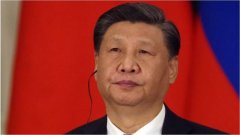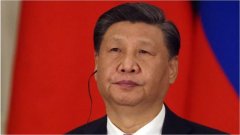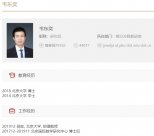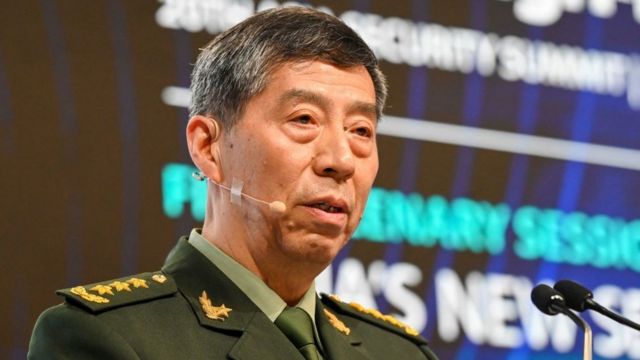
“Unless the Chinese authorities are willing to establish an adequate legal system that is no longer bound by itself, these purges will continue to happen.”
But the “disappearance” of these officials may also stem from Beijing’s growing misgivings and uneasiness as it deals with its troubled relationship with Washington.
In July this year, China’s revised Counterespionage Law came into effect, giving authorities greater investigative powers and scope. Soon after, China’s Ministry of State Security publicly encouraged citizens to help them fight espionage.
The "disappearance" of Li Shangfu is exactly the same as the "disappearance" of Foreign Minister Qin Gang. In July this year, Qin Gang's "disappearance" also aroused widespread speculation, and he was eventually dismissed from his post as foreign minister in July. The Wall Street Journal reported this week that Qin Gang was under investigation for an alleged extramarital affair that resulted in the birth of a child in the United States.
“In the circles of the (communist) elite, having an extramarital affair is not grounds for removal from office, but having an extramarital affair with someone who might be suspected of having ties to foreign intelligence agencies and giving birth to a child who holds sway over your major geopolitical rivals - Even if a child has a passport from a hostile country, something might happen to him," China analyst Bill Bishop pointed out.
There is also speculation that Mr. Xi is bowing to pressure from within his party to begin the overhaul as China grapples with a post-COVID-19 economic slowdown and soaring youth unemployment. Under China's political system, Xi Jinping is not only the president of China, but also the supreme commander of the military.
From a certain perspective, the "disappearance" of these officials is a sign of instability in Xi Jinping's leadership.
Observers have noted that Li Shangbo and Qin Gang are not only ministers but also hold higher-level State Council positions, and they are favored by Xi Jinping. Therefore, their sudden collapse may be seen as an oversight by China's leaders.
Xi Jinping consolidated power at last year's 20th National Congress of the Communist Party of China, successfully weeding out potential political opponents and adding allies to the key Politburo Standing Committee. Therefore, if some people regard the "disappearance" of these officials as a political purge, then it is indeed a bad sign that the new leadership team had to "make a major change" so quickly after taking office.
But another view is that this is another show of strength by Xi Jinping.
Observers say Xi, the son of a purged Communist Party official, is known for his public crackdowns on corruption as part of a political purge aimed at weeding out his enemies.
No other Chinese leader since Mao Zedong has overhauled officialdom on the scale of Xi Jinping. It is estimated that since he launched a "tiger-swatting" campaign targeting both low-level and high-level officials shortly after taking office in 2013, his anti-corruption campaign has led to the "displacement" of thousands of cadres.
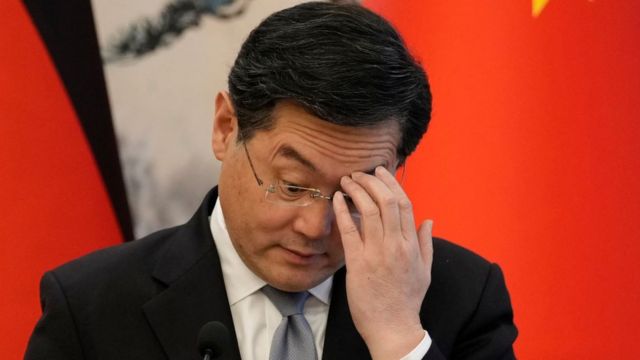
IMAGE SOURCE,POOLImage caption,Qin Gang
In 2017, he targeted the military and investigated and punished more than 100 senior officers. The number "far exceeds the number of generals who died in a hail of bullets to create a new China," state news agency Xinhua said in an article at the time.
But the big question is what signal the recent disappearance of officials will send and what impact it will have.
Observers say the incidents will create a climate of fear among the military and government. While this may be the intended result of a crackdown on military discipline, it can also undermine morale.
Over the years, Xi Jinping has systematically eliminated those who have lost his trust and packed his cronies into senior positions, which can mean he surrounds himself with yes-men officials.
Cai Zhixiang pointed out that the risk of groupthink is a "real destabilizing factor" for Xi Jinping's leadership because it can have adverse effects on China's national security and foreign policy.
In fact, the "disappearance" of these officials occurred at a time of tense tensions in the Taiwan Strait, with China dispatching more warships and military aircraft to Taiwan waters in recent weeks.
Ian Chong, a non-resident fellow at the think tank Carnegie China, said any disruption in communication on foreign policy and defense diplomacy would be "particularly concerning" because "accidents may occur and controlling escalation may become difficult." More challenging”.
Others believe China's military leadership is strong enough to withstand the replacement of some senior officials, noting that China has been careful to stay below the threshold of war.
Others believe that the “disappearance” of officials is unlikely to have a long-term impact on the stability of Xi Jinping’s leadership. Neil Thomas, an expert on Chinese elite politics at the Asia Society Policy Institute, noted that none of the officials targeted so far were part of his inner circle.
Most observers agree that these incidents highlight the opacity of China’s system. "This further raises questions about the continuity of policy implementation and the credibility of any working-level commitments or guarantees," Zhuang Jiaying said.
Ultimately, the sudden "disappearance" of these officials heightened the "resulting concerns."

